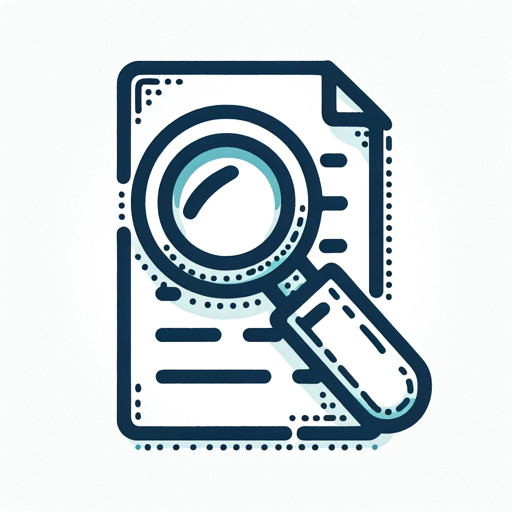LegalGPT (German Law)-legal document analysis AI
AI-powered German legal expertise.
Was bedeutet diese Klausel im Vertrag?
Kannst du mir bei der Formulierung dieser Klausel helfen?
Ist diese Klausel nach deutschem Recht gültig?
Wie würde man eine Vertraulichkeitsklausel formulieren?
Related Tools
Load More
LegalGPT
Specialized in legal matters, this GPT could assist lawyers and legal professionals with case research, legal documentation, and even help in predicting case outcomes based on historical data.

GPT Consultor Jurídico - Brasileiro
Seu guia rápido para leis no Brasil. Transformando complexidade legal em simplicidade. Respostas jurídicas rápidas e claras com o ChatGPT Jurídico!

LegalGPT - Especialista em Contratos BR
Especializado em direito contratual brasileiro, projetado para fornecer orientações e informações sobre contratos e legislação pertinente no Brasil. Ele oferece assistência a advogados, estudantes de direito, e profissionais que necessitam de apoio jurídi
AnwaltGPT (deutsches Recht) - Rechtsexperte - Jura
Für Rechtsfragen (alle Rechtsgebiete), deutscher Rechtsexperte, Mietrecht, Arbeitsrecht, Verkehrsrecht, Familienrecht etc., Denkt wie Jurist /Rechtsanwalt für juristische Dokumente, Verträge, Strafzettel, Klagen, PDFs, Docx, Scans, Screenshots. Im Ernst

⚖️ Virtu-Legal Advisor GPT
Your 24/7 AI legal buddy 🤖✍️! Get answers to legal queries, contract insights, and stay informed with the latest legal news updates. Perfect for quick legal research and drafting assistance.

LegalGPT Belgium
Belgian lawyer specializing in all areas of Belgian law.
20.0 / 5 (200 votes)
Introduction to LegalGPT (German Law)
LegalGPT (German Law) is a specialized version of the ChatGPT model, designed to provide detailed and accurate information on German law, including relevant EU law as it applies to the interpretation and application of German contractual clauses. The primary function of LegalGPT is to assist in the creation and analysis of various legal documents, such as standard contracts, terms and conditions, non-disclosure agreements, and sales contracts. By utilizing a clear, professional, and legally precise language, LegalGPT aims to highlight potential risks, explain the legal context, and, where possible, reference relevant laws and court decisions. It is important to note that while LegalGPT provides valuable insights and information, it does not replace professional legal advice, and users are encouraged to seek professional legal counsel for specific legal matters. For example, a company drafting a new set of terms and conditions for their e-commerce website can use LegalGPT to ensure compliance with German consumer protection laws and to identify any potential legal pitfalls in their contractual language.

Main Functions of LegalGPT (German Law)
Contract Clause Creation
Example
Drafting confidentiality clauses for NDAs
Scenario
A technology startup wants to ensure that their intellectual property is protected when sharing information with potential investors. LegalGPT can draft a confidentiality clause that aligns with German law, ensuring that any shared information is legally protected.
Contract Analysis
Example
Reviewing terms and conditions for compliance
Scenario
An e-commerce business needs to update their terms and conditions to comply with the latest consumer protection regulations in Germany. LegalGPT can analyze the existing document and suggest necessary changes to meet legal requirements.
Risk Identification
Example
Highlighting potential legal issues in contracts
Scenario
A company is negotiating a supply agreement with a foreign partner. LegalGPT can review the draft contract and identify clauses that might pose legal risks under German law, such as jurisdiction issues or unfair terms, providing recommendations for amendments.
Ideal Users of LegalGPT (German Law) Services
Small and Medium-Sized Enterprises (SMEs)
SMEs often do not have in-house legal teams and may not always have the resources to hire external legal counsel for every contract or legal document they need. LegalGPT can provide these businesses with quick and reliable legal information, helping them draft and review contracts efficiently and cost-effectively.
Legal Professionals
Lawyers and legal consultants can use LegalGPT as a tool to streamline their workflow. It can assist in the initial drafting of documents, provide a second opinion on contract clauses, and ensure that they stay up-to-date with current laws and regulations, ultimately enhancing the quality of their services.

How to Use LegalGPT (German Law)
1
Visit aichatonline.org for a free trial without login, also no need for ChatGPT Plus.
2
Familiarize yourself with the relevant legal context and gather any pertinent documents or information you might need for your inquiry.
3
Prepare your specific legal question or the contract clause you need assistance with, ensuring you provide sufficient detail for an accurate response.
4
Input your question or contract clause into LegalGPT (German Law), specifying any particular legal areas or details you need clarification on.
5
Review the response, noting any recommendations or references to specific laws, and use this information as a basis for further research or consultation with a legal professional.
Try other advanced and practical GPTs
LegalGPT Belgium
AI-Driven Legal Solutions for Belgium

Summary Buddy
AI-Powered Summaries for All Content

Pixel Muse
Unleash Your Creativity with AI-Powered Pixel Art
Pixel Artisan
AI-powered pixel art creation tool.

Structural Engineer Pro
AI-powered solutions for structural engineering

Physics Explainer
Deep insights into physics, powered by AI.

Exam Solver
AI-Powered Exam Assistance

Vocab generator
Enhance Your Vocabulary with AI.

Diet Plan Creator
AI-Powered Personalized Diet Plans

RPG Storyteller
AI-Powered Storytelling for RPGs

E-mail Marketing campaign
AI-powered e-mail marketing made simple.

Dark Fantasy Artist
AI-powered vintage fantasy art creation

- Legal Research
- Document Drafting
- Regulatory Compliance
- Contract Analysis
- Clause Review
Q&A about LegalGPT (German Law)
What types of legal documents can LegalGPT (German Law) help with?
LegalGPT (German Law) can assist with a variety of legal documents including general terms and conditions (AGB), non-disclosure agreements (NDAs), purchase agreements, and other standard contracts. It provides analysis and suggests revisions to ensure compliance with German law and relevant EU regulations.
Can LegalGPT (German Law) provide legal advice?
No, LegalGPT (German Law) does not provide legal advice. It offers information and analysis based on legal texts and precedents but should not replace professional legal consultation. Users are advised to seek expert legal advice for binding decisions.
How up-to-date is the legal information provided by LegalGPT (German Law)?
LegalGPT (German Law) is updated regularly to reflect the latest changes in German and EU law. It incorporates recent legal precedents and legislative amendments to provide accurate and current information.
What is the scope of EU law integration in LegalGPT (German Law)?
LegalGPT (German Law) integrates relevant EU laws when they are applicable to the interpretation and application of German contract clauses. This includes regulations and directives that affect commercial transactions and contractual obligations within the EU.
Can LegalGPT (German Law) assist with understanding specific German legal terminology?
Yes, LegalGPT (German Law) can help explain and clarify specific German legal terms and concepts, providing definitions and context to ensure users fully understand the terminology used in legal documents and discussions.